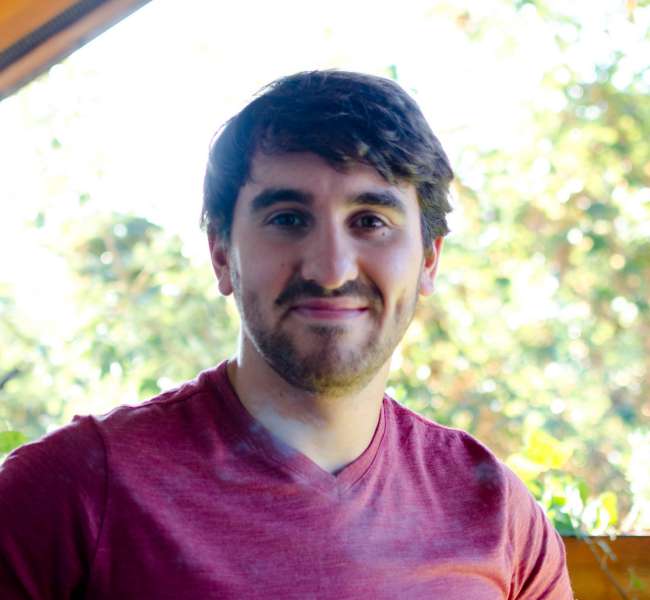Good morning, how are you? I'm fine, thank you.
Publicatu: 20.02.2017
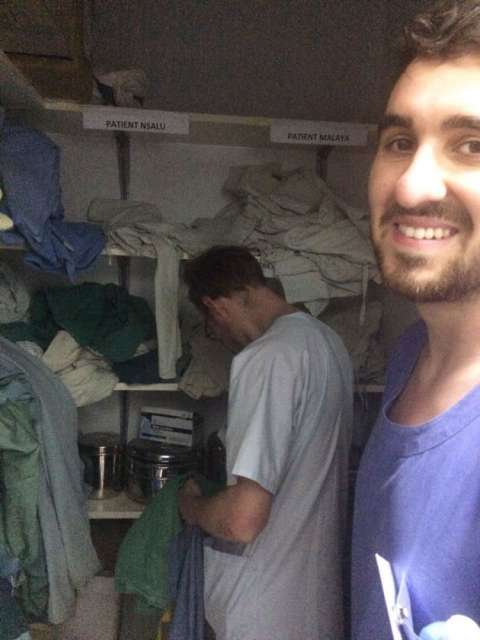
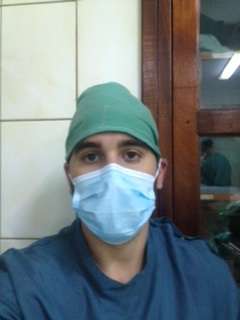
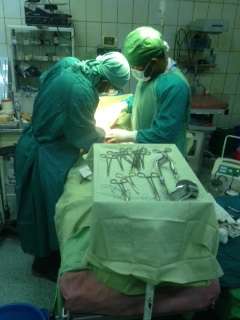
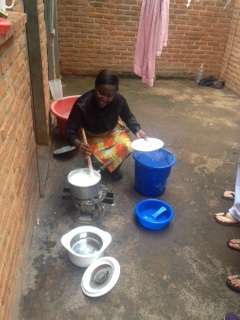
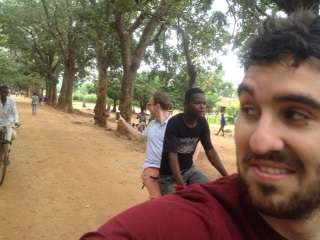
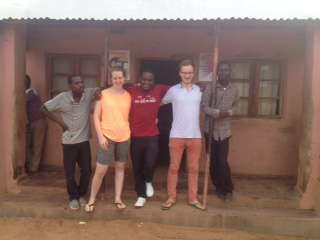
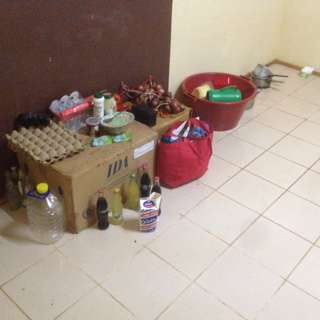
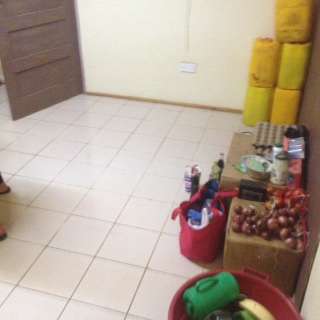
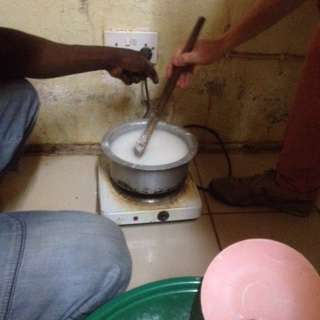
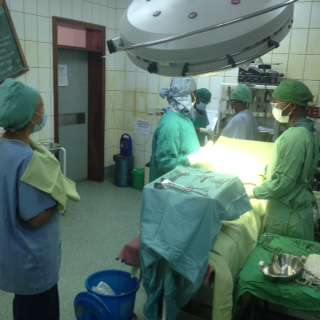
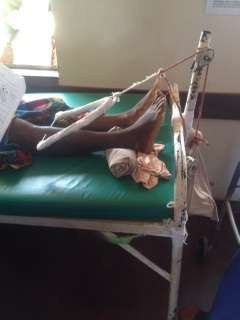
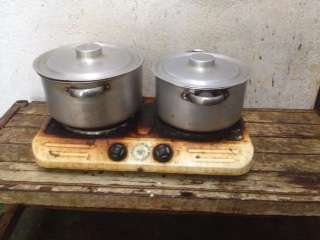
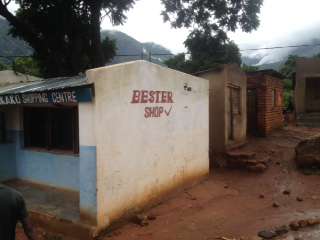
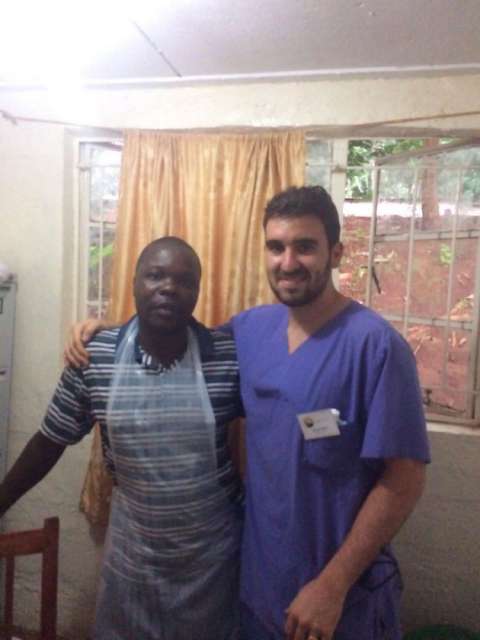
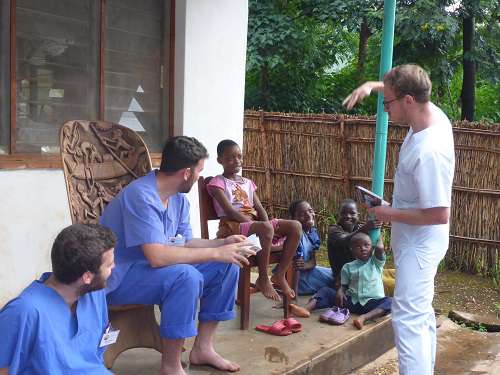
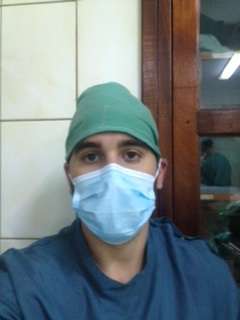
Abbonate à Newsletter
I'm very happy that I bought a book in Germany to learn the local language: Chichewa. As almost always, language is the key to people. And in Malawi especially. Just a few words and phrases are enough to make the patients in the hospital incredibly happy and I can reduce fears and reservations. But it's also great for the hospital staff, they feel honored that a white person is learning/speaking their language, and the fact that there is a book in German about Chichewa is already the first topic of conversation. We get to know the people and are invited to eat twice. I am very happy about that because I find it really interesting to get to know the "real" culture in Malawi. Here is a brief comparison of what our student house looks like: we have two beds and a shelf in the rooms, in the kitchen there is a sink and also a shelf with old pots and an old external hob with two hotplates. There is even a refrigerator. Everything is a bit dirty, rundown, not luxurious, but you can still withstand it quite well. I don't have high demands.
But then I was quite surprised by the people here: there are hardly any furniture, no tables, no cutlery, no shelves, just a few chairs. And a large open space in the middle of the "living room". The food is then served as follows: the food is placed on the floor and plates are brought. Then the host goes around in a circle and washes the guests' hands. There is almost always only "Nsima", which is water with maize powder and tastes like nothing. Everyone gets a big spoonful on their plate and then you can load up the side dishes, such as small dried fish in sauce, tomatoes, beans, egg, okra, etc. Food is eaten with the right hand, a ball of Nsima is formed and then a hole is pressed into it. With this "spoon" you scoop up the side dish and then put it in your mouth. Since the whole hand is covered with food afterwards, the host goes around again for hand washing. There is water to drink. We wanted to bring something special as a gift and bought 8 bottles of cola, but that didn't go down well. It was only drunk out of politeness.
At first, I felt really sorry for them, but I believe that the richness of the people lies in their relationships with each other. Almost everything people own can be bought directly on the street, just like everyday life on the street: hairdresser, tailor, etc. But nobody cares about that here, or so it seems. It is much more important to sit together, talk and laugh, and help each other. They are probably happier than many Europeans, and one thing I have already noticed - I will miss the friendliness of the people here, greeting each other and briefly talking about how they are doing and what they are doing, it's somehow nice. Most people are also always interested, because there are hardly any tourists, at least here in Phalombe. So far, we have only met one Frenchman who has been here for almost two years. He was very excited to see other white people and immediately made an appointment to meet us.
However, the simple way of life also poses dangers, as many people do not have a stove, so cooking is done over an open fire. That is why there are many patients in the hospital with extremely large and heavy burns. Other typical problems are: tuberculosis, HIV, malaria, malnutrition (especially in children), pneumonia, and the classic: abscess. This is certainly not for everyone, when 1 liter of pus is drained from the maxillary sinus. The patient is happy, suddenly he can speak again. So there are a lot of things that make it hard for me to breathe, whether it's the two-year-old child in the final stage of AIDS and opportunistic tuberculosis, severe pneumonia that drives the patient to the brink of absolute exhaustion, compound fractures due to domestic violence, countless infections, and so on. For the most part, the clinical officers know what to do, the problem is just that everything takes incredibly long. One hand doesn't know what the other is doing, an indication for surgery gets lost or the anesthesiologist goes to eat. A woman comes and it quickly becomes clear that an emergency caesarean section needs to be performed, it is 7 o'clock. Around 10:30, it is finally time and the child has actually survived, we breathe a sigh of relief and are happy, the operator wonders, he didn't know it was an emergency. The mother is emotionally shattered, but she is only 15 years old. Almost all mothers are between 14 and 20, the older ones probably give birth at home as experienced ones. The patients are taken care of by the "guardians," who are family members. The nursing staff actually only prepare the medications or change dressings.
So the days pass quite quickly here and I often smile at what you see here every day, how people work and live: most people always have somewhere to go, on foot or by bicycle, with huge loads of wood, cans, goats, etc. strapped on the back. Sometimes also on a moped, then an old construction helmet is often used as a motorcycle helmet, with a shoelace attached. Safety first. Next to us, a house is being "expanded." Half-crumbled bricks are used for this. There is no meter, spirit level, circular saw, or anything else that might be needed. The result looks like bacon, but it doesn't matter, the corrugated iron is crooked too. Further down on the hospital grounds, four men trim the grass, using machetes with bent tips to chop it. With this technique, they manage to create an area of about 20x20 square meters. Apparently, the scythe has not yet been invented here, and I haven't seen a Stihl distributor either. But, on the other hand, many people have found work in this way. They can then load the money onto their cell phone, which serves not only as credit for making calls but also as a kind of bank account.
Now half of the time at the hospital is almost over. I am still excited about the next few weeks!
Abbonate à Newsletter
Rispondi

